| Main | Topics and categories | Tasks and projects |
The Politics portal
Politics (from Ancient Greek πολιτικά (politiká) 'affairs of the cities') is the set of activities that are associated with making decisions in groups, or other forms of power relations among individuals, such as the distribution of resources or status. The branch of social science that studies politics and government is referred to as political science.
It may be used positively in the context of a "political solution" which is compromising and non-violent, or descriptively as "the art or science of government", but also often carries a negative connotation. The concept has been defined in various ways, and different approaches have fundamentally differing views on whether it should be used extensively or in a limited way, empirically or normatively, and on whether conflict or co-operation is more essential to it.
A variety of methods are deployed in politics, which include promoting one's own political views among people, negotiation with other political subjects, making laws, and exercising internal and external force, including warfare against adversaries. Politics is exercised on a wide range of social levels, from clans and tribes of traditional societies, through modern local governments, companies and institutions up to sovereign states, to the international level.
In modern nation states, people often form political parties to represent their ideas. Members of a party often agree to take the same position on many issues and agree to support the same changes to law and the same leaders. An election is usually a competition between different parties.
A political system is a framework which defines acceptable political methods within a society. The history of political thought can be traced back to early antiquity, with seminal works such as Plato's Republic, Aristotle's Politics, Confucius's political manuscripts and Chanakya's Arthashastra. (Full article...)
Selected article
America's 60 Families is a book by American journalist Ferdinand Lundberg published in 1937 by Vanguard Press. It is an argumentative analysis of wealth and class in the United States, and how they are leveraged for purposes of political and economic power, specifically by what the author contends is a "plutocratic circle" composed of a tightly interlinked group of 60 families.
Featured picture

Photo taken by a Lockheed U-2 spy plane of the San Cristobal MRBM launch site in Cuba, November 1962, after the Cuban Missile Crisis. Although this image was taken days after the crisis had ended (October 28), this image has become iconic of the crisis to the point where it is often cited incorrectly as having been taken during the crisis.
Selected quote
Selected biography
Józef Piłsudski (1867–1935) was Chief of State (1918–22), "First Marshal", and authoritarian leader of the Second Polish Republic. From mid-World War I he was a major influence in Poland's politics, and an important figure on the European political scene. He is considered largely responsible for Poland regaining independence in 1918, after 123 years of partitions. Early in his political career, Piłsudski became a leader of the Polish Socialist Party. Concluding, however, that Poland's independence would have to be won by force of arms, he created the Polish Legions. In 1914 he anticipated the outbreak of a European war, the Russian Empire's defeat by the Central Powers, and the Central Powers' defeat by the western powers. When World War I broke out, he and his Legions fought alongside the Austro-Hungarian and German Empires to ensure Russia's defeat. In 1917, with Russia faring badly in the war, he withdrew his support from the Central Powers. From November 1918, when Poland regained independence, until 1922, Piłsudski was Poland's Chief of State. In 1919–21 he commanded Poland's forces in the Polish–Soviet War. In 1923, with the Polish government dominated by his opponents, particularly the National Democrats, he withdrew from active politics. Three years later he returned to power with the May 1926 coup d'état, and became the de facto dictator of Poland. From then until his death in 1935, he concerned himself primarily with military and foreign policy.
Did you know (auto-generated) -

- ... that the photograph Kandake of the Sudanese Revolution symbolised the determination of the Sudanese people as they called for political change?
- ... that even though the Legislative Assembly of Quebec ordered a monument of Maurice Duplessis in front of its building, later premiers hid it for 16 years to avoid political tensions?
- ... that as part of its strategy of political renovation, National Convergence nominated a librarian to contest one of Bolivia's most competitive legislative districts?
- ... that Kaczyzm is a pejorative term describing the political ideology of Polish politicians Lech and Jarosław Kaczyński and their Law and Justice party?
- ... that thousands of political prisoners in Indonesia were interned in the Waeapo River valley in Buru?
- ... that the 2009 book Where Heaven and Earth Meet introduced the term "Sacred Esplanade" as a politically neutral term for the religious site in Jerusalem known as al-Haram al-Sharif or the Temple Mount?
More did you know...
- ...that the Communist League of America was formed after some members of the Communist Party USA were expelled for Trotskyism?
- ...that "Tippecanoe and Tyler too" (campaign banner pictured) was called the "Marseillaise" of the 1840 United States presidential election?
- ...that the events of Polish October together with Hungarian November shook the Eastern Bloc in 1956 and set the course for the Revolutions of 1989?
- ...that the current constitution of Nicaragua, the ninth in the country's history, was the final step in the institutionalization of the Sandinista regime?
- ...that depending on a time and place, the same social movement may be revolutionary or not?
- ...that the Proletarian Revolutionary Organisation of Nepal proposed a synthesis of Buddhism and Maoism in 1977?
In this month
- July 20, 1944 – an assassination attempt is made on Adolf Hitler with involvement by notable German conservatives.
- July 23, 1952 – The European Coal and Steel Community is established.
- July 27, 1830 – King Charles X of France is overthrown in the French Revolution of 1830, also known as the July Revolution.
- July 31, 1912 – American conservative economist, statistician, and Nobel Prize winner Milton Friedman is born.
News and Current events
- August 11: 4 local government areas in New South Wales, Australia locked down after COVID-19 case
- August 11: Australia: AstraZeneca vaccine access expanded by Victorian government
- August 1: Australia: Victorian lockdown lifted
- July 29: Tunisia's president dismisses prime minister, suspends parliament
- July 25: Australia: Wikinews interviews Reg Kidd, mayor of the City of Orange, about COVID-19 lockdown and local government
- July 23: South Australia enters week-long lockdown to contain COVID-19 Delta variant spread
- July 21: Technological University Dublin senior lecturer Dr Lorcan Sirr speaks to Wikinews on housing market in Ireland
- July 21: Three rural councils in New South Wales, Australia enter 7-day lockdown
- July 21: Australia: Victoria lockdown extended by a week with 85 active cases recorded
- July 15: California governor signs new state budget, eligible Californians to get stimulus payments
Topics and categories
General images
Related portals
Associated Wikimedia
The following Wikimedia Foundation sister projects provide more on this subject:
-
 Commons
Commons
Free media repository -
 Wikibooks
Wikibooks
Free textbooks and manuals -
 Wikidata
Wikidata
Free knowledge base -
 Wikinews
Wikinews
Free-content news -
 Wikiquote
Wikiquote
Collection of quotations -
 Wikisource
Wikisource
Free-content library -
 Wikiversity
Wikiversity
Free learning tools -
 Wiktionary
Wiktionary
Dictionary and thesaurus

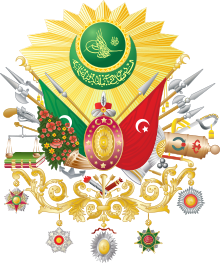

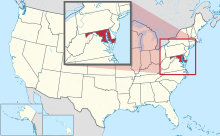
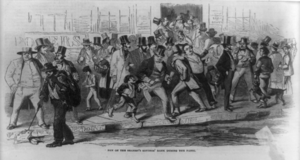


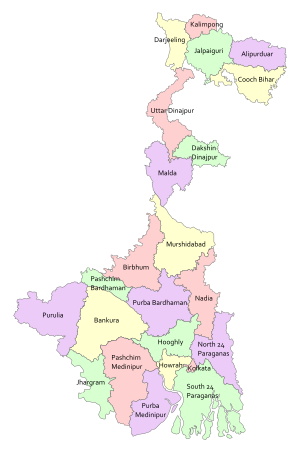
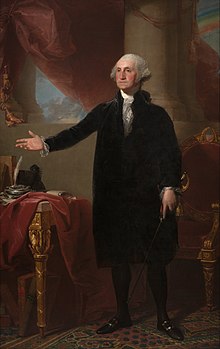


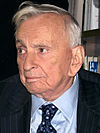







































Well, that’s interesting to know that Psilotum nudum are known as whisk ferns. Psilotum nudum is the commoner species of the two. While the P. flaccidum is a rare species and is found in the tropical islands. Both the species are usually epiphytic in habit and grow upon tree ferns. These species may also be terrestrial and grow in humus or in the crevices of the rocks.
View the detailed Guide of Psilotum nudum: Detailed Study Of Psilotum Nudum (Whisk Fern), Classification, Anatomy, Reproduction